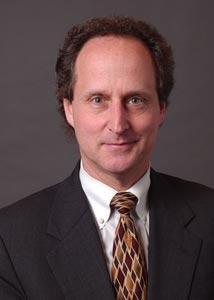
New York, NY—Bernard Clair didn't know when he got his start in the legal profession that he'd find his calling in divorce law, or that he'd one day be among the nation's highest profile divorce attorneys, working on cases for celebrities and billionaires. In fact, he started with very different ambitions—working at a firm specializing in music law as a summer associate during law school.
In an interview with laws.com, Clair says that a case he worked on during that summer shaped his career as an attorney. The firm's partners gave him a divorce case, and “even as a baby lawyer,” Clair says he knew that the experience he'd gain from the case would be valuable.
(More on News at LAWS.com, Contact Sean for interviews “seanc@laws.com”)
After graduating from law school in 1976, Clair says he was “one of those crazy grads who decided to hang the shingle. I started my own firm with a fellow grad, as opposed to accepting offers I had received at some of the midtown firms.”
Divorce law was a natural fit for the recently graduated Clair, who says that he profited from a bit of good timing: “we decided to advertise. In the year we started practicing, the Supreme Court of the United States had just ruled that attorneys could advertise.” Divorcing couples sought out attorneys who advertised, and his practice grew quickly.
Clair's rise to fame and elite status began when he attracted the attention of Marvin Mitchelson, one of the most famous divorce attorneys of the 1980s. A book Clair co-wrote with Anthony Daniele, Love Pact: A Layman's Complete Guide to Legal Living Together Agreements, was on the cutting edge of family law. The book focused, Clair says, on “cohabitation and the laws surrounding cohabitation.”
Mitchelson made Clair and Daniele his New York attorneys, which brought in complex, high-conflict divorce cases. “I primarily deal with high profile, high conflict, high net worth individuals, with a smattering of actual celebrities.”
According to Clair, one of the biggest problems for divorcing couples is that the court system is “as dry as plaster,” and that the law can't resolve the emotional issues that cause couples to split up in the first place. “Criminal lawyers see bad people at their very best, divorce lawyers see good people at their very worst,” said Clair.
The biggest piece of advice Clair says that he has for divorcing couples is to attempt a resolution relatively quickly. “Otherwise,” he says, “they will lose control.” Couples who cannot come to an agreement about parenting time arrangements, for instance, could see a judge “awarding the days as the court sees fit, as opposed to what the parents initially desired … litigation should be the last resort.”
In his practice, Clair sees divorce law changing because of the changing ways that the wealthy are managing their money. He has had to track down hundreds of millions of missing dollars using a forensic evaluator when a hedge fund manager's wealth went suddenly missing after his wife filed for divorce. “As the world becomes more complicated, the way in which people make money is more complicated,” he says, and notes that for divorcing couples today, putting assets in offshore accounts is no longer likely to keep them hidden from divorce court judges.



























